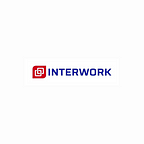Unlocking the Potential of the Internet of Things
In an era defined by technological advancement, the Internet of Things (IoT) stands out as one of the most transformative innovations, reshaping the way we interact with the world around us. From smart homes and cities to industrial automation and healthcare, IoT is revolutionizing diverse industries, driving efficiency, improving quality of life, and fostering unprecedented levels of connectivity. In this blog, we’ll delve into the concept of IoT, explore its applications, and discuss the implications of this ubiquitous network of interconnected devices.
What is the Internet of Things?
At its core, the Internet of Things refers to the network of physical objects embedded with sensors, actuators, and other technologies that enable them to collect and exchange data with other devices and systems over the internet. These interconnected devices can range from everyday objects such as smartphones, wearables, and household appliances to sophisticated industrial machinery and infrastructure.
Applications of IoT:
- Smart Homes: IoT technology has revolutionized home automation, allowing homeowners to control various devices and systems remotely via smartphone apps or voice commands. From thermostats and lighting to security cameras and kitchen appliances, smart home devices offer convenience, energy efficiency, and enhanced security.
- Smart Cities: IoT is driving the development of smart cities, where interconnected sensors and devices monitor and manage urban infrastructure in real-time. From traffic management and waste collection to environmental monitoring and public safety, IoT solutions optimize city operations, improve resource allocation, and enhance the quality of life for residents.
- Industrial Automation: In industrial settings, IoT-enabled sensors and devices enable predictive maintenance, remote monitoring, and process optimization. By collecting and analyzing data from equipment and machinery, businesses can identify inefficiencies, minimize downtime, and optimize production processes for greater efficiency and cost savings.
- Healthcare: IoT is revolutionizing healthcare delivery by enabling remote patient monitoring, personalized treatment plans, and predictive analytics. Wearable devices, medical sensors, and connected healthcare platforms empower patients to take control of their health while enabling healthcare providers to deliver more proactive and personalized care.
Implications and Challenges:
While the potential benefits of IoT are immense, the widespread adoption of interconnected devices also presents significant challenges. Security and privacy concerns, interoperability issues, data governance, and scalability are among the key challenges that must be addressed to realize the full potential of IoT while safeguarding against potential risks and vulnerabilities.
Conclusion:
The Internet of Things represents a paradigm shift in how we interact with technology, blurring the lines between the physical and digital worlds. From enhancing everyday convenience to driving innovation across industries, IoT has the potential to transform our lives in profound ways. As we continue to embrace IoT technology and navigate its complexities, it is essential to prioritize security, privacy, and ethical considerations to ensure a sustainable and inclusive IoT ecosystem that benefits society as a whole.
